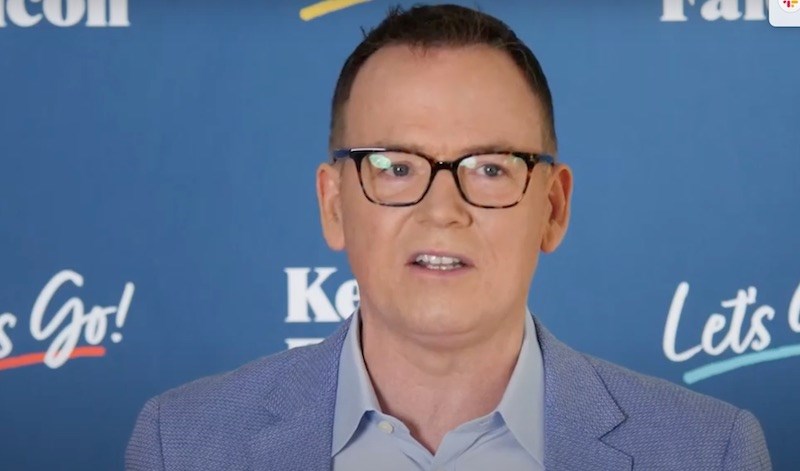After nearly a decade away from politics, former B.C. cabinet minister Kevin Falcon headed into the first BC Liberal leadership candidates as the presumptive front-runner of the party’s leadership race. After the debate, Falcon’s campaign is now in dire need of a course correction.
Within minutes of the debate, fellow candidate Gavin Dew fired a subliminal shot across the bow to Falcon supporters.
“We’re all saying the right things, but it comes down to a leader whose baggage from the past won’t overshadow our future.”
Shortly thereafter, BC Liberal MLA for Vancouver-Langara Michael Lee adopted a direct approach. “I’m all in. People are asking you, Kevin, are you all in, as well?”
The question was largely premised on how, after losing his first BC Liberal leadership campaign to Christy Clark in 2011, Kevin Falcon did not run as an MLA candidate for the party in 2013, 2017, and 2020.
“I’ve bled for this party,” Falcon insisted.
Michael Lee, Ellis Ross (MLA for Skeena), and Renee Merrifield (MLA for Kelowna Mission) would then converge to question Falcon’s commitment to the BC Liberal Party.
One after another, the three BC Liberal MLAs asked Falcon if he would run for the BC Liberals in the next provincial election if he were to lose his bid to become the party’s leader. In fact, Lee, Ross, and Merrifield each asked Falcon twice.
Clearly unsatisfied with the previous five responses that Falcon provided, Merrifield put it simply: “Will you run in the next election if you don’t win leadership? Yes or no?”
“To be clear, no,” Falcon conceded. “I’m running to be leader of the BC Liberal Party… I’m doing it for the right reasons.”
This was a terrible answer. An experienced politician like Falcon should have said, “Yes, I plan to run for the BC Liberals, win or lose the leadership.”
If Falcon were to lose his leadership campaign — for a second and probably final time — he could always renege on such a promise. After all, plans can change in three years.
But maybe he had the foresight as to what was next in the debate.
Despite Falcon answering the question after being asked six times, Gavin Dew dredged up a broken promise from Falcon’s previous leadership run.
“Kevin has forgotten what he said in 2011. But I’ll read it out for you,” Dew said before quoting Falcon from 2011. ”I’ve made a commitment to run in this election, win or lose [the BC Liberal leadership]. Whether I win or lose, I am going to be a candidate for this party.’”
With four of the five other candidates belabouring the point that his desire to be the leader of the BC Liberals is apparently opportunistic, Kevin Falcon’s campaign now feels aimless.
Val Litwin may have been the most polished candidate, perhaps the candidate who could contrast B.C. Premier John Horgan the most. Gavin Dew came across as the most forward-thinking candidate. Michael Lee leaned into his foothold in Greater Vancouver, where the BC Liberals currently only hold five out of twenty-eight seats. Renee Merrifield effectively communicated grandiose ideas with poetic delivery at times. Ellis Ross was a no-nonsense truth-teller, firm in conviction and enriched with life experience.
Falcon’s brand, in contrast, was poorly defined by this debate.
Thematically, the BC Liberals leadership debate centred around finding a new leader to bring change and renewal to a defeated party. Kevin Falcon is almost out of place as a BC Liberal leadership candidate from a long-absent past, whose commitment to change and renewal is apparently predicated only on him being the leader.
Nonetheless, Falcon may still currently be the front-runner for the BC Liberal leadership election on February 5, 2022.
But unless he and his campaign can convey a clear and relevant brand to BC Liberal members, Falcon may not be the front-runner in the party’s leadership race for much longer.
Mo Amir is the host of This is VANCOLOUR, a politics and culture podcast available on Apple Podcasts, Spotify, Google Podcasts, and





